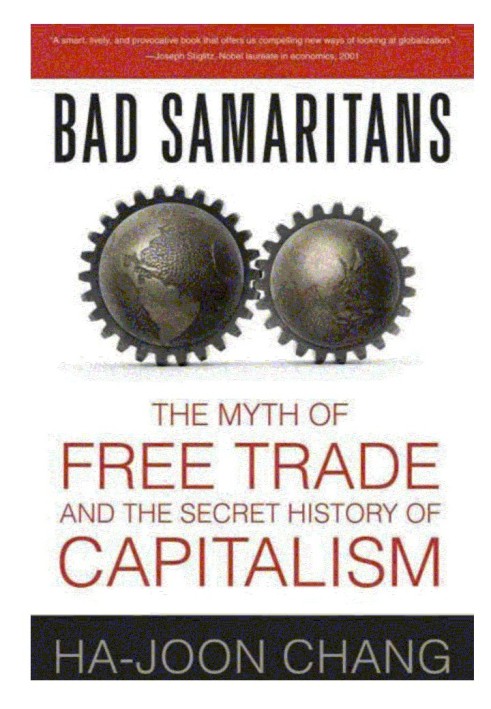Bad Samaritans
 Instant download
Instant download
after payment (24/7)
 Wide range of formats
Wide range of formats
(for all gadgets)
 Full book
Full book
(including for Apple and Android)
So how can we dissuade the Bad Samaritans from harming poor countries, no matter how noble their intentions? And what could they do instead? By combining history, analysis of the modern world, predictions for the future and proposals for some changes, this book can provide answers to these questions. We need to start with the true history of capitalism and globalization, which I devote to the next two chapters (Chapters 1 and 2). In these chapters I will demonstrate that much of what the reader might consider to be the “facts of history” is either incorrect or only half-truths. Britain and the US are not the birthplace of free trade; in fact, for a long time, they were the most protectionist countries in the world. Not all countries have succeeded with protectionism and subsidies, but of those that have succeeded, almost none have managed without them. For developing countries, free trade has rarely been a matter of their own choice; often it was imposed from the outside, sometimes even by military force. For the most part, under free trade they lived very poorly; when they used protectionism and subsidies, they fared much better. The best economic performance was in those countries that opened their economies selectively and gradually. Neoliberal policies of free markets and free trade require sacrificing equity for growth, but in fact achieve neither; growth has slowed over the past twenty-five years, as markets have been freed up and borders have opened. In the body of the book (Chapters 3 to 9), which follows the historical part, I will use a combination of economic theory, history, and contemporary evidence to turn generally accepted views on economic development are on their heads. The final chapter begins with an alternative “story from the future,” but this time it is very bleak. The scenario is deliberately pessimistic, but its basis is firmly rooted in today's reality, showing how close we are to such a future if we continue the neoliberal policies propagated by the Bad Samaritans. Later in this chapter, I will present some key principles that summarize the alternative economic policies discussed in detail throughout this book that must guide our actions if we are to help developing countries move their economies forward. Despite the grim scenario, the chapter, like the entire book, ends on an optimistic note, explaining why I believe that most Bad Samaritans can be changed and made to truly help developing countries improve their economic conditions.
Data sheet
- Name of the Author
- Ха-Джун Чанг
- Language
- Ukrainian
- Release date
- 2008
Reviews
Вражаюча та провокаційна книга!
"Недобрі Самаритяни" - це глибоке дослідження сучасної економічної політики, яке змушує читача переосмислити традиційні уявлення про допомогу країнам, що розвиваються. Автор майстерно поєднує історичні факти з аналізом сучасного світу, ставлячи під сумнів багато загальноприйнятих міфів про свободу торгівлі та протекціонізм. Книга не лише викриває недоліки неоліберальної політики, але й пропонує альтернативні шляхи розвитку, які можуть дійсно допомогти бідним країнам. Особливо вразила завершальна глава, яка, незважаючи на песимістичний сценарій, залишає надію на зміни. Це обов'язкове читання для всіх, хто цікавиться економікою, соціальною справедливістю та глобальними проблемами. Рекомендую всім, хто хоче зрозуміти, як дійсно допомогти країнам, що розвиваються, а не лише створити ілюзію допомоги!





















